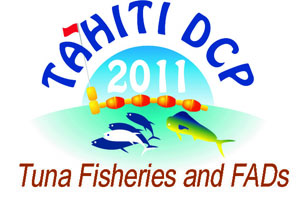Using fish aggregating devices (FADs) as observatories of pelagic ecosystems
1 : Institut de Recherche pour le Développement
(IRD)
UMR 212, P.o. Box 570, Victoria -
Seychelles
2 : University of Hawaii
Hawaii -
États-Unis
8 : South African Institute for Aquatic Biodiversity
(SAIAB)
Grahamstown , South Africa -
Afrique du Sud
3 : AZTI
Herrera Kaia - Portualdea z/g E-20110 Pasaia (Gipuzkoa) -
Espagne
4 : South African Institute for Aquatic Biodiversity
(SAIAB)
Private Bag 1015, Grahamstown, 6140 -
Afrique du Sud
5 : Institut de Recherche pour le Développement (La Réunion)
(IRD)
IRD
IRD - Université de la Réunion - Ile de La Réunion -
France
9 : Universidade Federal Rural de Pernambuca (UFRPE)
Brazil -
Brésil
6 : Institut de Recherche pour le Développement
(IRD)
UMR 212
Av. J. Monnet, 34203, Sete -
France
7 : USE
(Unit of social Ecology)
* : Corresponding author
Université Libre de Bruxelles, Campus de la Plaine, Boulevard du triomphe, Bat NO 5et 1050 Ixelles, Bruxelles, Belgique. -
Belgique
Many pelagic species aggregate around floating objects and so far, fishers have been more efficient than scientists in exploiting this behaviour. In addition to fishing on natural objects, fishers have been using FADs to enhance their catches of tropical tunas and other pelagic species. Research activities on fish at FADs are mainly aimed at improving our understanding of this associative behaviour and assessing the effects of FADs on fish ecology. However, the observation of pelagic species is inherently difficult, primarily due to the immensity of the pelagic habitat, the highly vagile behaviour of pelagic species and the fact that they are difficult to access. Here we propose a new use for FADs: in addition to fishing tools, FADs could become scientific aids to assist in improving our knowledge of pelagic ecosystems. Due to their abilities to naturally aggregate a wide variety of pelagic species, FADs represent micro "hot spots" of pelagic ecosystems and therefore provide an excellent opportunity to cost effectively investigate the nature of this immense realm. Even now, information collected by fishers could already provide scientists with very valuable data (e.g. those from echosounders buoys). Moreover, by equipping FADs with appropriate scientific instruments, they could become ideal scientific observation platforms for the regular collection of valuable data which can then be used to improve stock estimates of tropical tunas and other species (i.e. deriving fisheries-independent assessments which are not currently possible) and for the monitoring of the regional species diversity of open ocean pelagic ecosystems. In addition, fishers could actively participate in research by being in charge of deploying and maintaining such instrumented networks.

 PDF version
PDF version
